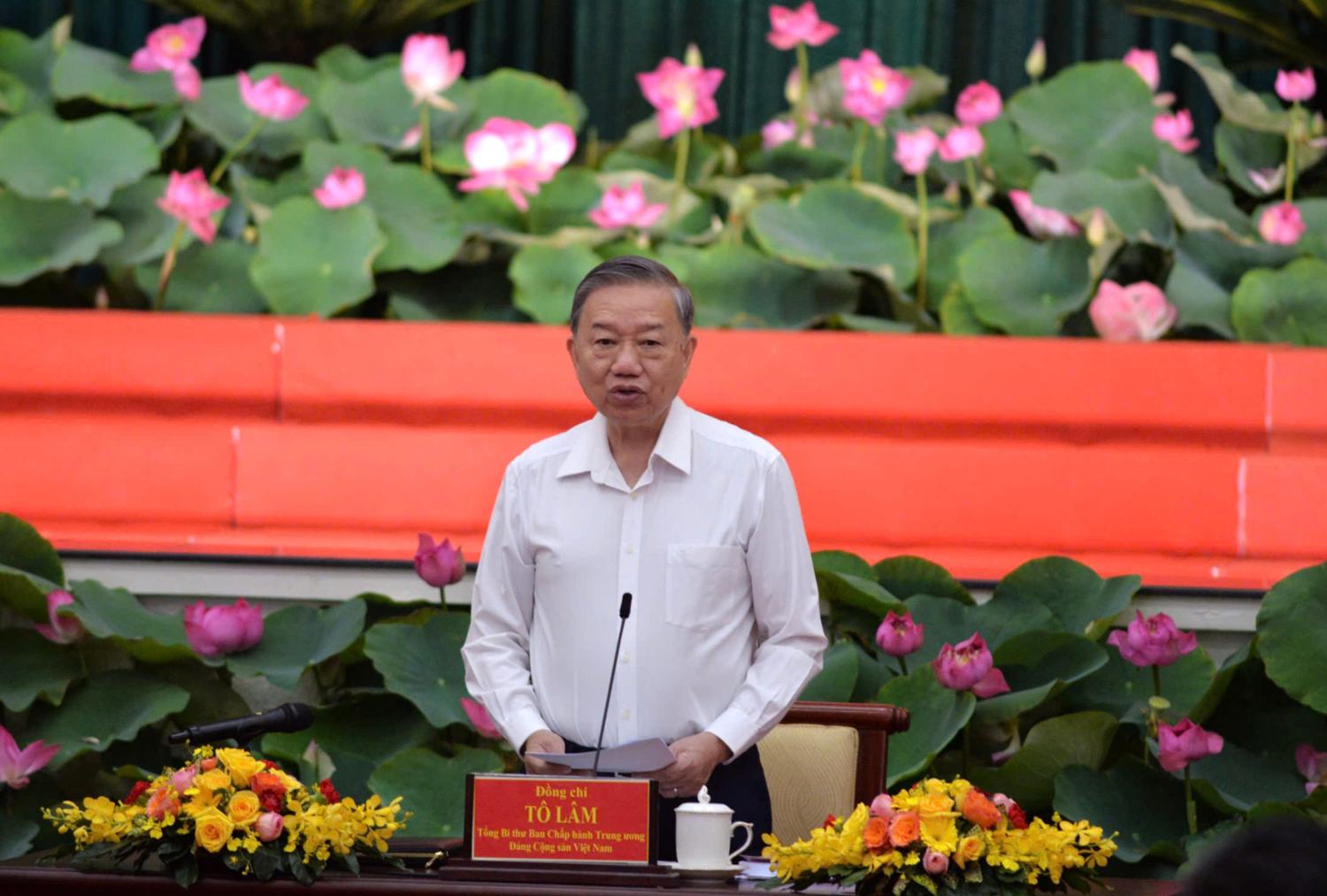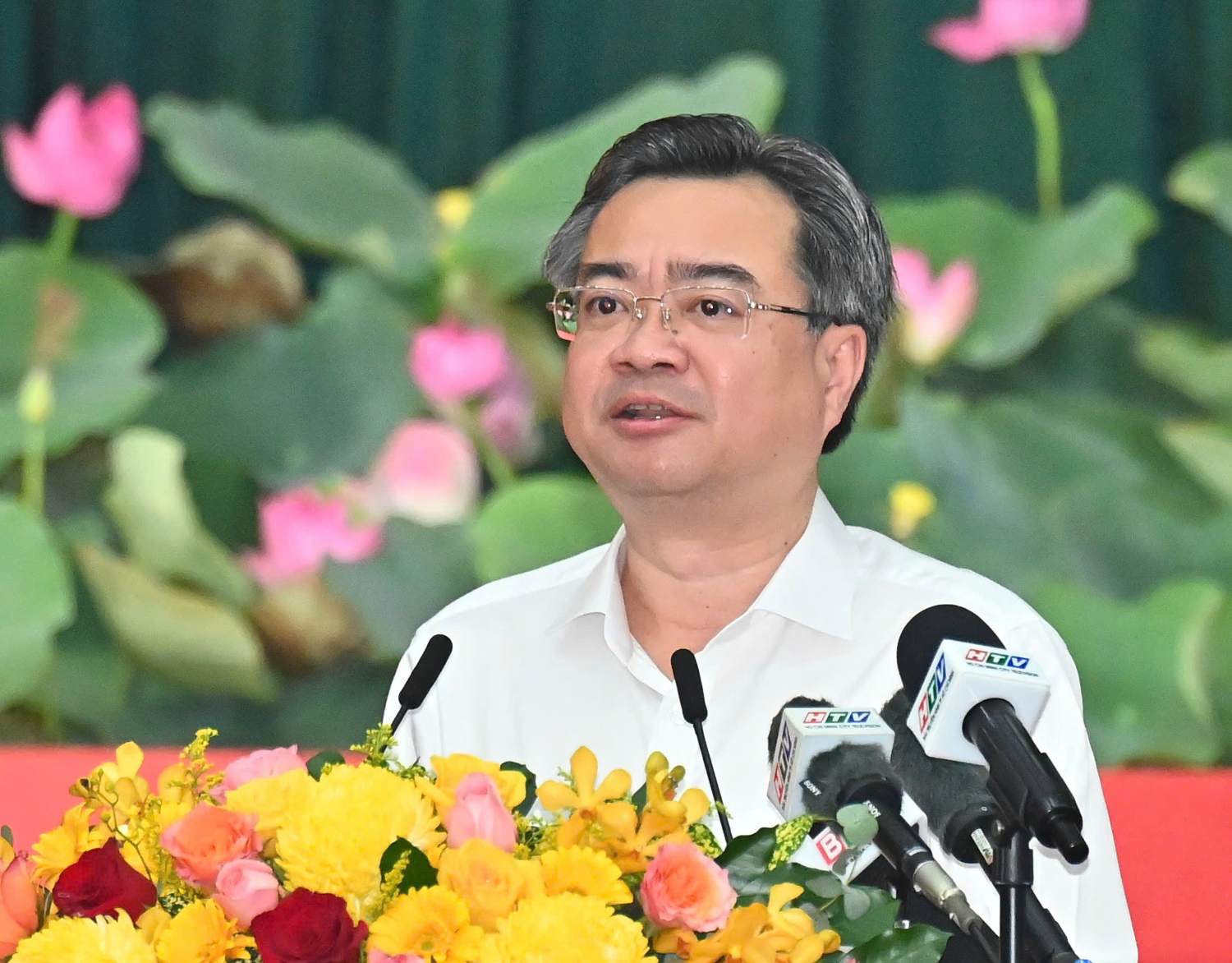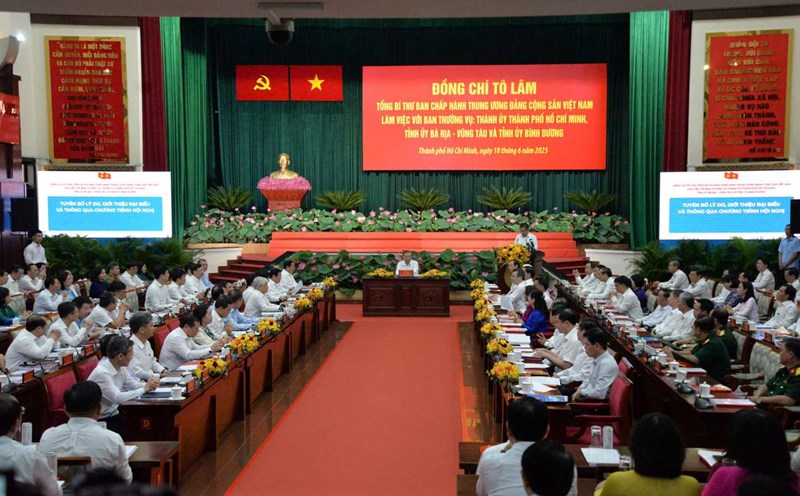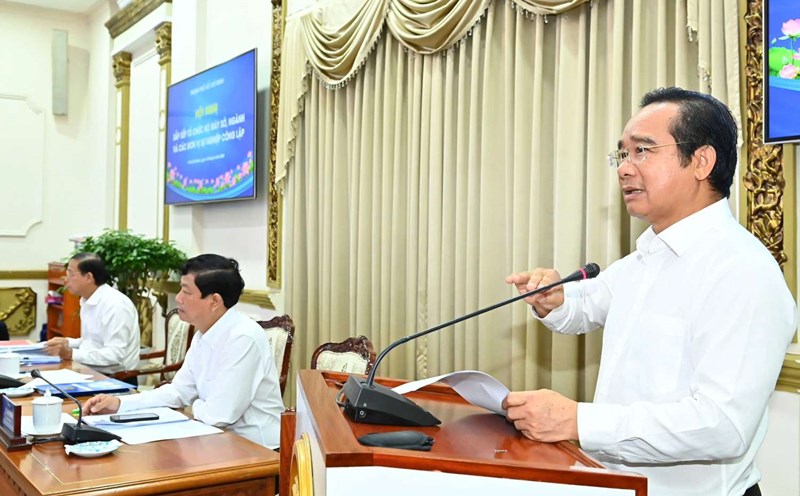On the morning of June 18, General Secretary To Lam, Prime Minister Pham Minh Chinh and the Central working delegation had a working session with the Standing Committee of the Ho Chi Minh City Party Committee, the Standing Committee of the Ba Ria - Vung Tau Provincial Party Committee and the Standing Committee of the Binh Duong Provincial Party Committee.
This is a working session of special significance, taking place in the context that Ho Chi Minh City and Binh Duong, Ba Ria - Vung Tau are in the process of completing the organization arrangement, preparing to put the new government apparatus into operation from July 1.
General Secretary To Lam expressed his joy at working with the Central, Politburo and Secretariat delegations to work with the two provinces and Ho Chi Minh City - the city named after Uncle Ho, the heroic city, the locomotive of innovation. The delegates will discuss, review, re-evaluate the quality and future orientation for the new Ho Chi Minh City.

According to General Secretary To Lam, in recent times, the Central Government has directed many urgent and urgent contents, and localities have implemented them synchronously, achieving very positive results.
In this working session, the Central working delegation wanted to listen to localities report on the results of the work that has been implemented, the problems, difficulties, shortcomings, inadequacies and the determination to implement them in the coming time.
The Central Government will accompany Ho Chi Minh City in removing difficulties for common purposes, in order to resolutely implement the Party's policies and guidelines.
General Secretary To Lam emphasized two especially important tasks ahead of him: Maintaining stability of the country and localities and maintaining peace and order for development; at the same time, focusing all resources to strive to complete the targets of the National Party Congress, the Resolutions of the Party and the city, preparing for the 14th National Party Congress.
At the meeting, Standing Deputy Secretary of the Ho Chi Minh City Party Committee Nguyen Thanh Nghi presented a number of important proposals for the new Ho Chi Minh City.
In particular, Ho Chi Minh City proposed that the Central Government, the National Assembly, the National Assembly Standing Committee, the Government and the Prime Minister allow the application of a special mechanism, retaining all revenue from land funds in the period of 2026 - 2030 to create resources for infrastructure development.
The city also proposed that the National Assembly soon issue a resolution on the organization and operation of the International Financial Center in Ho Chi Minh City, considering this a driving force to promote socio-economic development in the new period.

On the side of Ba Ria - Vung Tau province, the locality has completed two key projects including: piloting a number of specific mechanisms and policies for Con Dao district and studying the establishment of a free trade zone associated with Cai Mep Ha seaport. These projects have been submitted to competent authorities in accordance with regulations.
The Standing Committee of the Ba Ria - Vung Tau Provincial Party Committee recommended that the Politburo and the Secretariat soon consider and promulgate to open up new development space for Ho Chi Minh City after the merger.
Regarding transport infrastructure, localities recommend that the Central Government issue appropriate mechanisms, policies and allocate resources to invest in synchronous and diverse development of transport types; thereby reducing pressure on roads and shortening travel time.
In particular, localities proposed to prioritize urban railway projects, including the Suoi Tien - Moi Binh Duong route and the Ho Chi Minh City - Thu Dau Mot - Binh Phuoc route.
Ho Chi Minh City also recommends that the Government review and issue a specific mechanism to attract domestic and foreign strategic investors, especially in the fields of planning, construction licensing, investor selection and labor licensing.
The goal is to create favorable conditions for infrastructure development, especially science and technology infrastructure, digital transformation, thereby improving the city's competitiveness in the new context.










